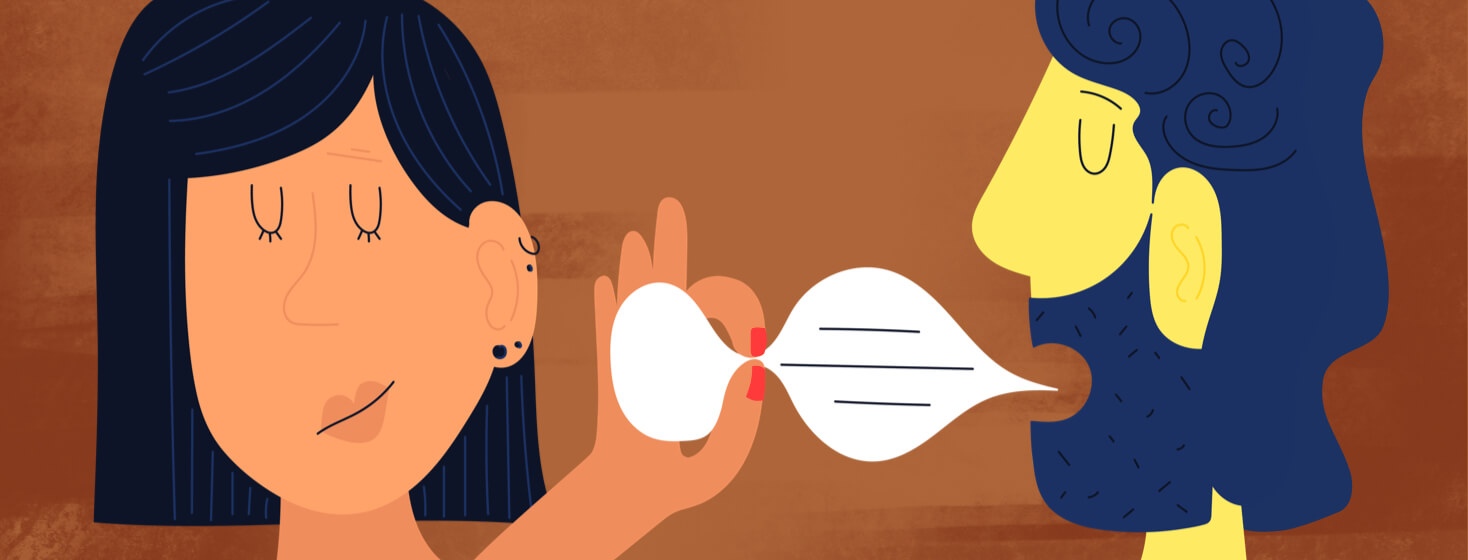What Not to Say to Someone with Thyroid Eye Disease : Part 2
My initial article on this topic led to several in-depth discussions with individuals in the chronic illness community. The general consensus - it is very difficult to know what the right thing to say is, and conversations like this are important. Sensitive topics should be approached with equal sensitivity, and that requires both awareness and discussion. As we are all continuously learning how to navigate delicate situations, here are a few more phrases that in my experience are not as helpful as they were perhaps intended to be.
What not to say to someone with TED
“I’m extra careful about my lifestyle choices, so I won’t get thyroid disease (TED).”
First of all, scientists largely do not know what causes TED and many other autoimmune conditions, so being extra careful about choices is largely guesswork. There are several known risk factors associated with TED - smoking, Graves’ disease, family history, age, sex, radioactive iodine therapy, diabetes, high cholesterol, other autoimmune conditions - but do you see how many of these risk factors are choices and how many are out of one’s control? Unfortunately, someone can do everything right, and they can still get TED. Furthermore, statements like this have a flip side and imply that the person with TED was not careful and somehow brought this upon themselves.1,2
“I don’t notice a difference.”
I wrote about this in part 1, but I think it is worth elaborating on. I had previously mentioned that it really does not matter if other people do not notice a difference - it is about how the person with TED sees themselves. Additionally, not every symptom of TED is visible to others. Vision changes, for example, can drastically impact daily life. It is also important to keep in mind that people with TED may attempt to mask their symptoms to make the changes less noticeable. I learned makeup tricks and was constantly focused on relaxing my eyelids and face. Saying “I don’t notice a difference” is not a compliment that I did something right or that my disease is not severe, it is simply invalidating.
“Cheer up, it could be worse - at least you don’t have xyz!”
Trauma is not a contest. This phrase invalidates a person’s pain, struggles, and personal experience by unfairly comparing and ranking their experience to that of others. Everyone's feelings and struggles are real and valid. Secondly, many individuals experience mental health challenges as a result of TED. Encouraging someone to just be happy does not erase the trauma. Unfortunately, it is not that simple.
“Wow look at you’re eyes, that’s crazy!!!”
If you notice something strikingly different about someone’s appearance, odds are that person is already well aware, and perhaps there are extremely traumatic experiences associated with it. This is a good time to remember that we should all treat others the way we wish to be treated ourselves - no one needs to be told their face looks crazy.
Calling someone with the sole purpose of asking about their disease.
I understand that when someone is worried about a loved one, the natural thing is to want to ask them about it. But the approach is important when considering highly emotional and sensitive chronic illnesses. I may be going about my day, busy with work and errands, then I get an unexpected call where I am suddenly asked a lot of very personal, difficult, and potentially upsetting questions that I may not be prepared to talk about. The sudden demand for my emotional energy can feel overwhelming. I would recommend taking a more indirect route. Perhaps send a text or email - “Hey, I was thinking about you. Feel free to reach out if there’s anything I can do to support you." Or check-in with a spouse or family member instead. Personally, I was thankful that my husband offered to update friends with basic information while I was recovering from multiple surgeries related to TED. I wanted my friends to know I was okay, I simply did not have the emotional energy to recount the story over and over again.
“Everything happens for a reason. There is always a lesson to learn.”
My personal opinion - I simply cannot believe that this terrible thing was somehow destined to happen to me to produce something good, and honestly it is difficult to pinpoint what I learned from this experience. I am not a stranger to autoimmune conditions or advocating for myself. Sometimes bad things just happen, and we deal with them.
Intentions and alternatives
I understand that many of these statements stem from good intentions. However, it is important to remember that when discussing a highly emotional and personal chronic illness, the thing that matters most is the comfort level of your loved one. We never want to make our loved ones feel bad, especially during a stressful and painful time, and that is why this conversation is important. Words are meaningful and impactful.
So what are some other things to say instead? Here are my personal recommendations:
- “Is there anything I can do to support you?”
- “I’ve been thinking about you. Please feel free to reach out if you’d ever like to chat.”
- “Thank you for sharing your experience. I want to respect your feelings and space - what do you need from me in this moment?”
- Just listen.

Join the conversation